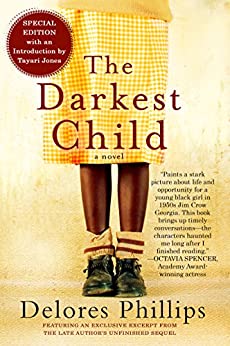More on this book
Community
Kindle Notes & Highlights
At the age of thirty-five, our mother was tall and slender with a head of thick reddish-brown hair. Her face, with its cream-colored skin and high cheekbones beneath dark gray eyes, was set off by a gleaming white smile
Tonya Johnson liked this
She had worked seven years cleaning house for the Munford family.
face. “Fifteen dollars,” she said indignantly. “I don’t care what I do ’round here, it’s always the same fifteen dollars. Never mind that I stayed late on Tuesday evening when Mister Frederick’s mother came for dinner. Never mind that I walked to the Colonial for flour that Miss Arlisa forgot to pick up. Week in, week out, always the same fifteen dollars.”
Rozelle Quinn,”
Rosie.
Miss Arlisa, she opined, was a fat, lazy white woman who had no idea how to keep house or satisfy a man. Mr. Frederick was a show-off, who drove his automobile around town, honking the horn, and bragging about everything he possessed, including his ugly wife.
The Negroes had Stump Town, the flats, and Plymouth, while the whites had Meadow Hill, East Grove, and North Ridge. There was never any trouble as long as everybody stayed where they belonged. We usually did.
Miss Janie Jay’s house was the first house on the Stump Town side of Cherokee Creek.
Miss Janie taught Sunday school and sang in the choir at the Solid Rock Baptist Church. She was old, probably about sixty or so. She wore her hair parted down the center with a thick gray plait on each side. On Sundays she covered the plaits with one of her many fancy hats, and when the spirit moved her, she would wave one hand in the air and hold tight to the hat with her other hand.
Our house stood alone on a hill off Penyon Road, about half a mile outside the city limits. It was old, crippled, and diseased— an emblem of poverty and neglect.
three drafty rooms under the same rusted tin roof.
Tarabelle was sixteen
cold, black eyes of a dead poker player.
Edna Pearl and Laura Gail, who were only four and five,
My next eldest sibling, Martha Jean, was a defective replica of our mother. She could not hear and had never spoken one coherent sentence in her life.
Laura and Edna immediately knelt, removed her shoes, and began to rub her feet. Martha Jean brought in the customary cup of steaming water, and I produced the stolen papers of coffee and sugar from my pocket. Tarabelle, having pulled herself together, came to stand beside me.
Mushy. ”That was my oldest sister.
Five of her nine children
real name was Elizabeth Anne, had been gone for four years. One summer evening, just after her eighteenth birthday,
she had left for Ohio. She had not returned, not even for a visit.
Martha Jean did not go to church, school, or anywhere much else, except up to Miss Pearl’s house on Sundays. There were times when I would take her with me to the colored library in Plymouth, or to the Colonial store in town, but mostly she just stayed at home and watched over Laura and Edna.
small shotgun houses with tin tubs hanging from hooks on side walls, outhouses beyond rows of winter-bare trees and empty clotheslines,
chicken coops, woodpiles, coal bins, the standard black cast-iron washtubs, and the ever-present water pipes snaking up through the ground like bronzed pythons.
Buford Street—the area of Stump Town modernized by electricity, indoor plumbing, and telephones. It was the street where Frank and Pearl Garrison lived. Mr. Frank was one of five Negro men who had been lucky enough to get a job
at the Pakersfield carpet mill. In our eyes, the Garrisons were wealthy. Miss Pearl just happened to be Mama’s best friend.
Martha Jean’s most profound lesson had been learned through a curriculum of intimidation and pain. In fact, we had all been students in that classroom with our mother as our teacher.
Mushy, Harvey, Sam, Tarabelle, Wallace,
he is only four.
Mushy, Harvey, Sam, and Martha Jean were her white children. Tarabelle, Wallace,
and Laura were Indians—Cherokee, no less. Edna and I were Negroes.
sheriff, Angus Betts,
He had completed two years of college, and our principal, Mr.Hewitt, sometimes called him in to teach when one of the regular teachers was absent.
I haven’t seen him around in a month of Sundays.”
but in the light of day they were hideous monstrosities—gutted and stripped—with coiled springs sprouting from the backs and seats. The makeshift chair covers were useless in disguising the hateful springs that ripped our clothes and tore at our skin.
midwife, Miss Zadie.
“The best way to get them is through education,” Junior countered. “What good are laws that cannot be read or understood, or a tongue that spews only hatred and ignorance? What good is the written word to an illiterate man?”


